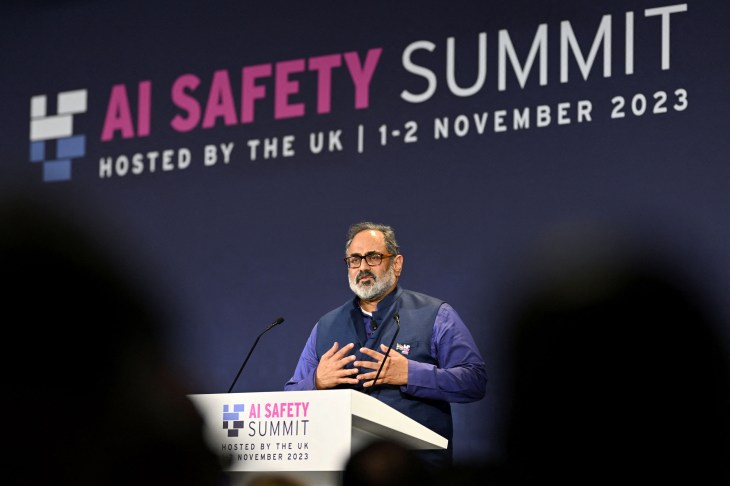India has warned tech companies that it is prepared to impose bans if they fail to take active measures against deepfake videos, a senior government minister said, on the heels of warning by a well-known personality over a deepfake advertisement using his likeness to endorse a gaming app.
The stern warning comes as New Delhi follows through on advisory last November of forthcoming regulations to identify and restrict propagation of deepfake media. Rajeev Chandrasekhar, Deputy IT Minister, said the ministry plans to amend the nation’s IT Rules by next week to establish definitive laws counteracting deepfakes. He expressed dissatisfaction with technology companies’ adherence to earlier government advisories on manipulative content.
“If a platform thinks that they can get away without taking down deepfake videos, or merely maintain a casual approach to it, we have the power to protect our citizens by blocking such platforms,” Chandrasekhar told a press conference.
Chandrasekhar said the ministry has bluntly informed technology platforms that failure to effectively combat deepfakes will prompt legal consequences from New Delhi. Deepfake content is unlawful and dangerous, and it is unacceptable for companies to hide behind claims of ‘best-effort’ while allowing these fabrications to spread, he stated.
Deepfakes made headlines in India again as the nation’s cricket icon Sachin Tendulkar took to social media this week cautioning his countless fans that manipulated video advertisements falsely using his video to endorse an online gambling platform were fraudulent.
“It is disturbing to see rampant misuse of technology,” he wrote in a post. “Social media platforms need to be alert and responsive to complaints. Swift action from their end is crucial to stopping the spread of misinformation and deepfakes.”
Trepidation is mounting over a potential proliferation of deepfakes ahead of India’s general elections, expected to commence starting April. IT Minister Ashwini Vaishnaw said late last year that technology platforms understood the gravity of deepfake content and agreed such media should not be shielded under free speech defenses.
Source: TechCrunch



![[CITYPNG.COM]White Google Play PlayStore Logo – 1500×1500](https://startupnews.fyi/wp-content/uploads/2025/08/CITYPNG.COMWhite-Google-Play-PlayStore-Logo-1500x1500-1-630x630.png)